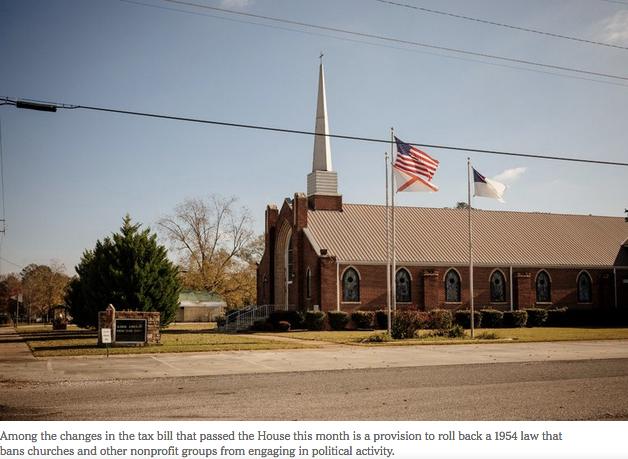WASHINGTON — For years, a coalition of well-funded groups on the religious right have waged an uphill battle to repeal a 1954 law that bans churches and other nonprofit groups from engaging in political activity.
Now, those groups are edging toward a once-improbable victory as Republican lawmakers, with the enthusiastic backing of President Trump, prepare to rewrite large swaths of the United States tax code as part of the $1.5 trillion tax package moving through Congress.
Among the changes in the tax bill that passed the House this month is a provision to roll back the 1954 ban, a move that is championed by the religious right, but opposed by thousands of religious and nonprofit leaders, who warn that it could blur the line between charity and politics.
The change could turn churches into a well-funded political force, with donors diverting as much as $1.7 billion each year from traditional political committees to churches and other nonprofit groups that could legally engage in partisan politics for the first time, according to an estimate by the nonpartisan congressional Joint Committee on Taxation.




